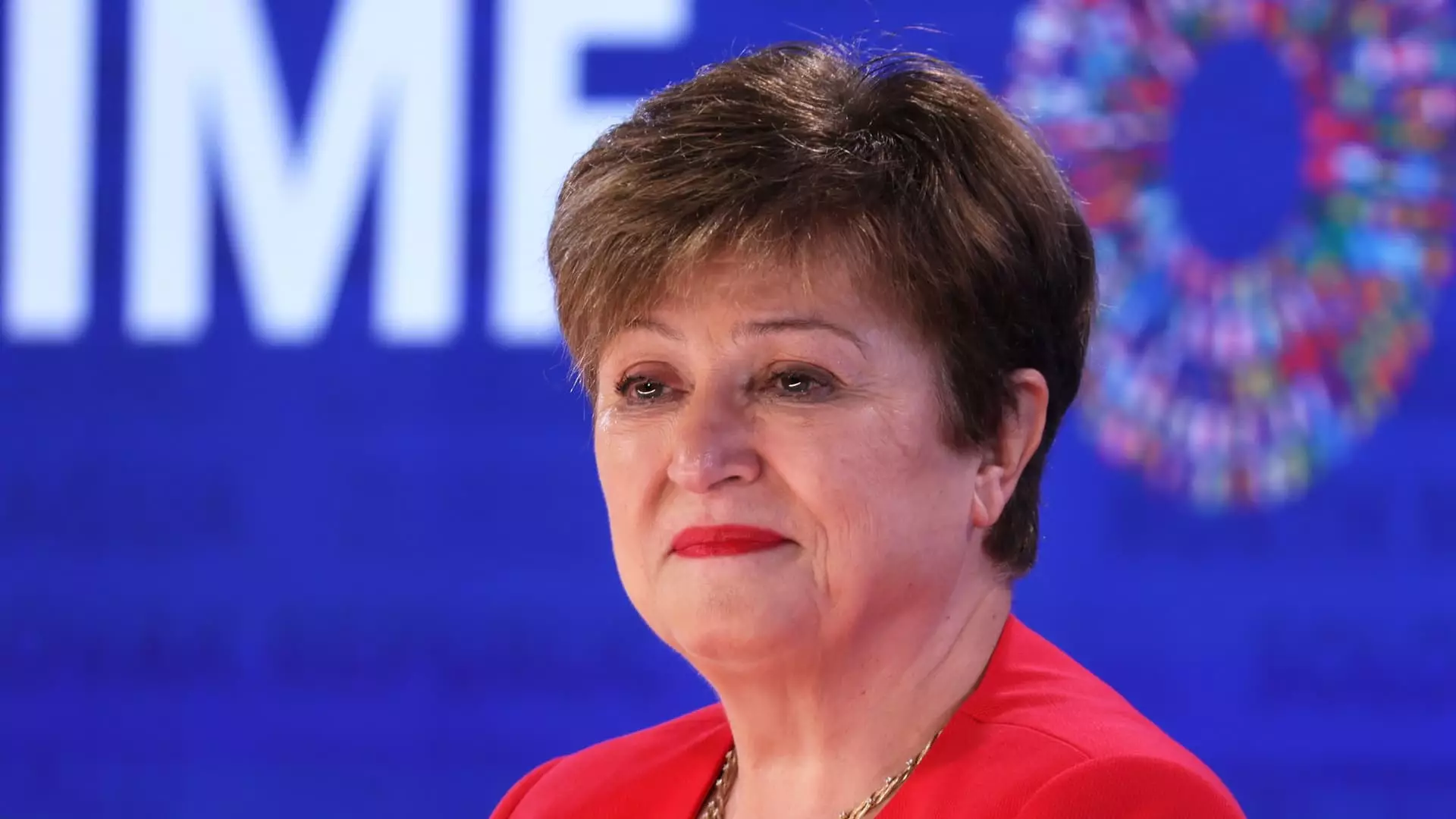In the wake of ongoing global economic fluctuations, Kristalina Georgieva, the Managing Director of the International Monetary Fund (IMF), has articulated serious concerns regarding the troubling combination of high debt levels and stunted economic growth. In a recent discussion with CNBC, Georgieva emphasized that while some progress has been made in terms of economic recovery, it is important to recognize that the current situation is far from stable. She pointed out that governments worldwide have grown increasingly reliant on borrowing, which—when coupled with sluggish growth—creates a precarious scenario that’s difficult to navigate.
Georgieva’s statement, “It’s not yet time to celebrate,” underscores the urgency of addressing these issues head-on. The rising debt burden combined with low growth creates a dual crisis that hampers governments’ abilities to effectively manage their economies. The dilemma raises essential questions: how sustainable is this borrowing trend, and what long-term solutions can be implemented to promote economic stability?
While acknowledging the successes achieved by many major central banks in their fight against inflation, Georgieva highlighted that these achievements have not been uniformly experienced. Some economies continue to grapple with stubborn inflation rates, which aggravate societal tensions and fuel political discontent. As she noted, “The impact of higher prices remains, and it is making many people in many countries feel worse off and angry.” This sentiment resonates deeply in numerous countries where citizens are increasingly vocal about economic grievances.
The upcoming meetings in Washington, D.C., between finance ministers and central bank governors underscore the pressing need to address these inflation disparities. Discussions on the global economic outlook must incorporate strategies for poverty alleviation and transitioning towards greener energy alternatives. Thus, effectively tackling inflation becomes not only an economic imperative but also a social necessity, as it directly influences public sentiment and stability.
The IMF managing director also expressed concerns about the evolving role of international trade, which she noted is no longer the robust “engine of growth” it once was. This shift has been largely driven by a growing trend of protectionist measures and restrictive policies among major economies. Georgieva pointed to the imposition of significant tariffs by the U.S. and the European Union against China as examples of this phenomenon, arising from perceived unfair trade practices.
As Georgieva observed, this trend stems from a broader narrative where individuals feel alienated by globalization—jobs vanish, communities deteriorate, and security concerns rise, especially in light of geopolitical conflicts like the ongoing war in Ukraine. This discontent has led to an environment filled with mistrust, wherein advanced economies are leading the charge on industrial protections rather than emerging markets. Consequently, the implications of this shift pose risks not only to economic growth but also to global cooperation.
A significant concern regarding protectionist policies is their long-term impact on international development and economic interdependence. Georgieva reiterated in her comments that such measures could turn out to be counterproductive, hurting the very economies that impose them. She emphasized the necessity of weighing the costs and benefits of tariffs, cautioning that businesses and consumers bear the brunt of these protective measures.
The conversation around trade restrictions invites critical analysis regarding alternatives that could foster healthier international relations. Could we pivot towards fostering cooperation and dialogue rather than retreating into isolationist policies? This approach might not only ease economic tensions but also help rebuild trust and partnerships among nations.
Lastly, in light of escalating geopolitical tensions, particularly in the Middle East, Georgieva highlighted the associated risks to global financial stability. Such conflicts not only threaten regional economies but also have far-reaching impacts on global energy markets. The volatility can potentially hinder economic growth and lead to further instability, exacerbating existing economic challenges.
In closing, while the global economy shows signs of recovery, the specter of high debt, entrenched inflation, protectionist policies, and geopolitical crises looms large. Charting a course through these treacherous waters will require not only prudent economic policy but also a renewed commitment to international collaboration, sustainability, and equitable growth for all nations involved. As we head into the future, it is crucial to remain vigilant, flexible, and responsive to the evolving economic landscape.



Leave a Reply